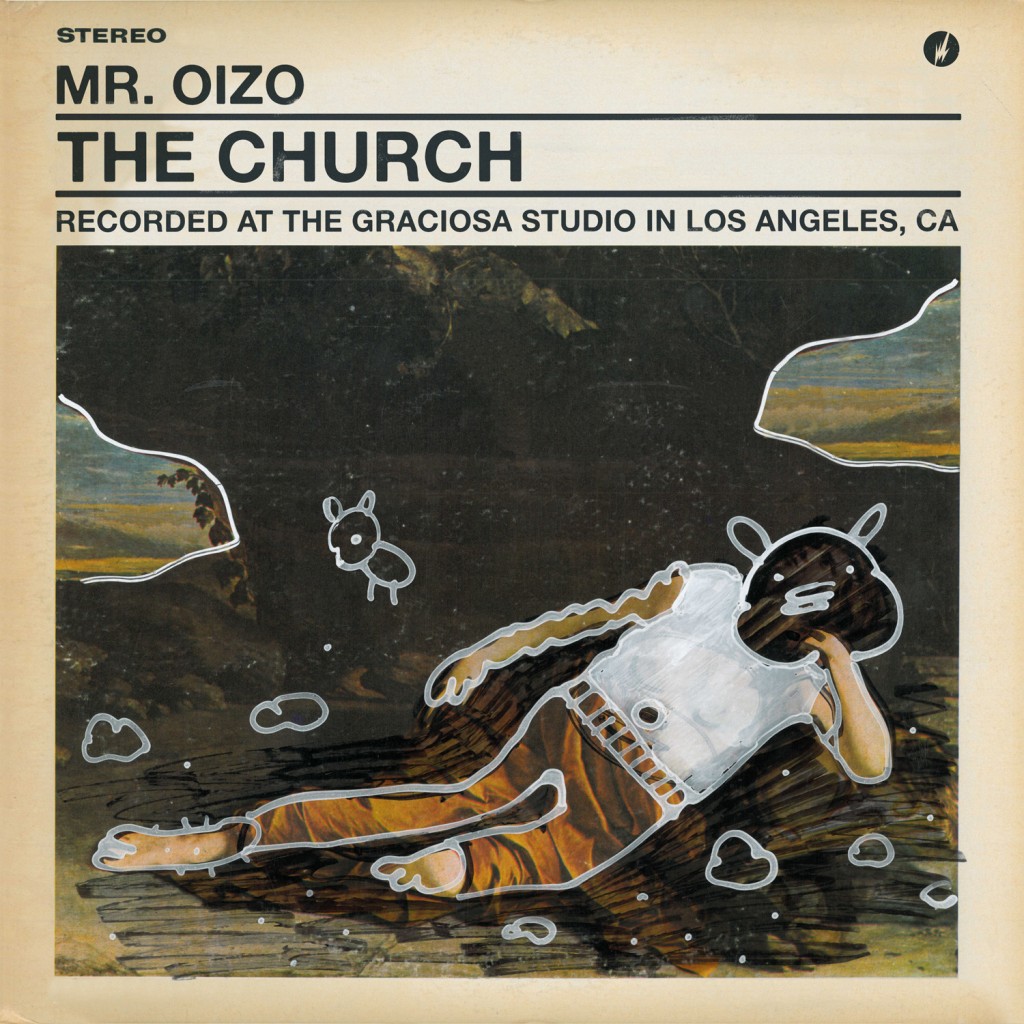
Mr. Oizo, the alias of French electro-extraordinaire and director Quentin Dupieux, has come a long way from providing the soundtrack for small-time, petty criminal puppet Flat Eric and his Levi jeans thieving shenanigans. Well known to those who came of age in the late nineties and early millennium, the track ‘Flat Beat’ and its fluffy, yellow mascot, represented a crossover of cultural motifs and fused a relationship between image and sound that is still instantly recognisable over a decade later. More importantly, with ‘Flat Beat,’ Dupieux created a track that was flat-out immense; one that was able to transcend the small screen and move seamlessly into record boxes and onto dance floors. With his latest LP, The Church, Dupieux has opted to forgo the glory of advertising fame and provide the listener with a set of tracks that belong to the heady darkness of the night-club, much like his interim work for Ed Banger records.
Released through Flying Lotus’ Brainfeeder imprint, The Church is not as serene an experience as the title might suggest. In fact, it’s fairly far removed from a lot of Brainfeeder’s output as of late. Opening track ‘Bear Biscuit’is a glitchy, stabbing electro-bounce number that stutters along built around screeching samples and clean, sharp 808 kicks. It’s heavy stuff and a fitting mission statement for the album, given the ferocity of the tracks that follow. Next up, ‘Ham’takes on the Mr. Oizo cutting synthesiser sound. Harsh and pulsating, ‘Ham’ is chaotic in its melody and uncompromising in its tone. It runs quite smoothly into ‘Destop,’ which is a nice touch, but ultimately is as angular and as jarring. ‘Dry Run’ provides little respite. Banging and hard-edged, it’s reminiscent of early Underground Resistance electro-techno and feels like it won’t be out of place when it inevitably hits the dancefloors this month. Unfortunately, the same can’t be said for ‘Mass Doom,’ a confusing title given that the song is a mishmash of electronic whimsy and inexplicable optimism. One would be inclined to think that its inclusion is based on its component parts and its analog feel, rather than it making a stand-out musical contribution to the record. That being said, salvation can and will be found within ‘The Church’, for ‘Machyne’ thankfully follows and gets back to basics. It’s frantic at times, dystopian in nature and deserves to be listened to underneath strobing lights. The phone ring sample works particularly well in building the overall punishing rhythm and adds flourish to an otherwise synth-heavy experience.
Closing with the title-track, ‘The Church’ reiterates the majority of what this LP has already accomplished. It’s as furiously infectious and as aggressive as ‘Ham, ‘Destop’ or ‘Machyne’ and is most certainly the standout moment of the album, but, at this point, you may well be too exhausted from the punishment to fully appreciate it. There is little to no let-up on The Church, and it could be problematic for home listening. However, it should make for a pretty nice addition to the record collections of DJs looking for the shock factor. Presumably DJs who play in underground techno-dungeons. Aaron Drain
[soundcloud url=”https://api.soundcloud.com/playlists/54330446″ params=”auto_play=false&hide_related=false&show_comments=true&show_user=true&show_reposts=false&visual=true” width=”100%” height=”450″ iframe=”true” /]




